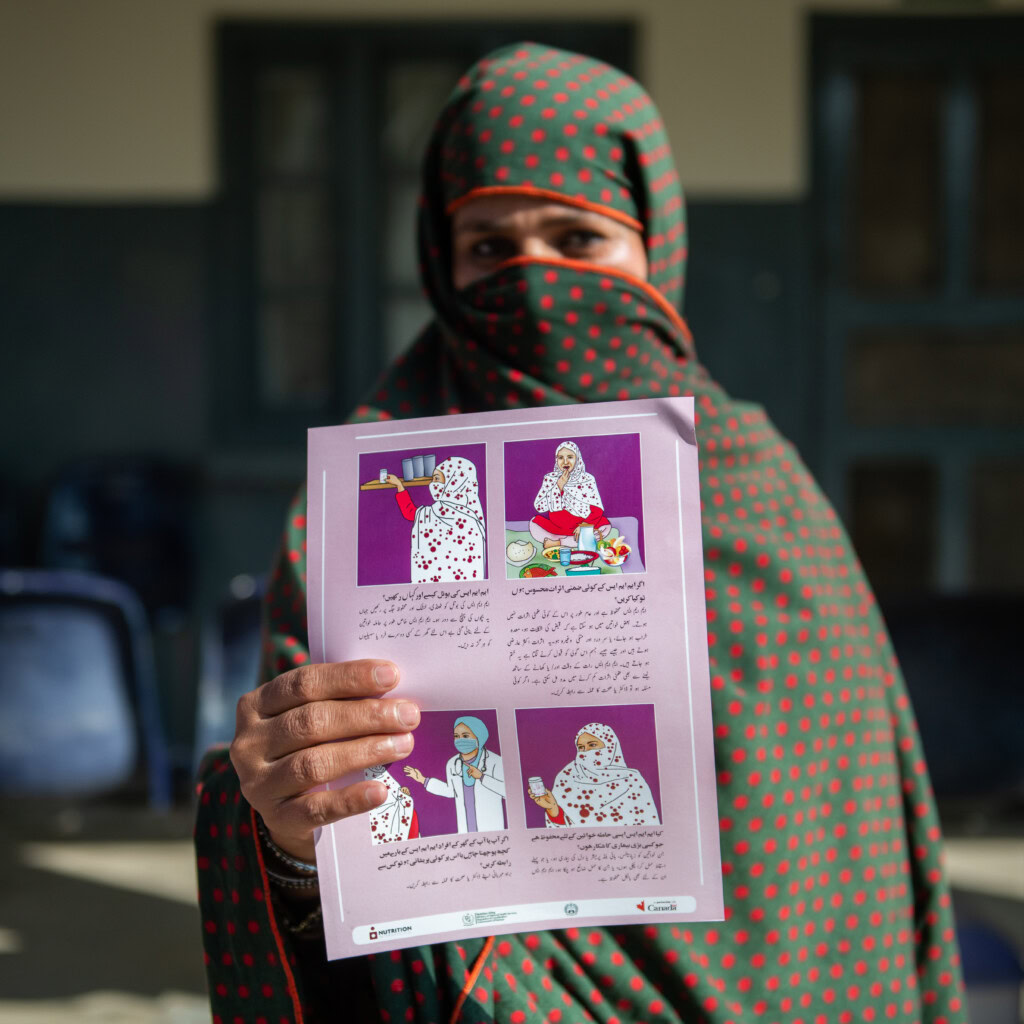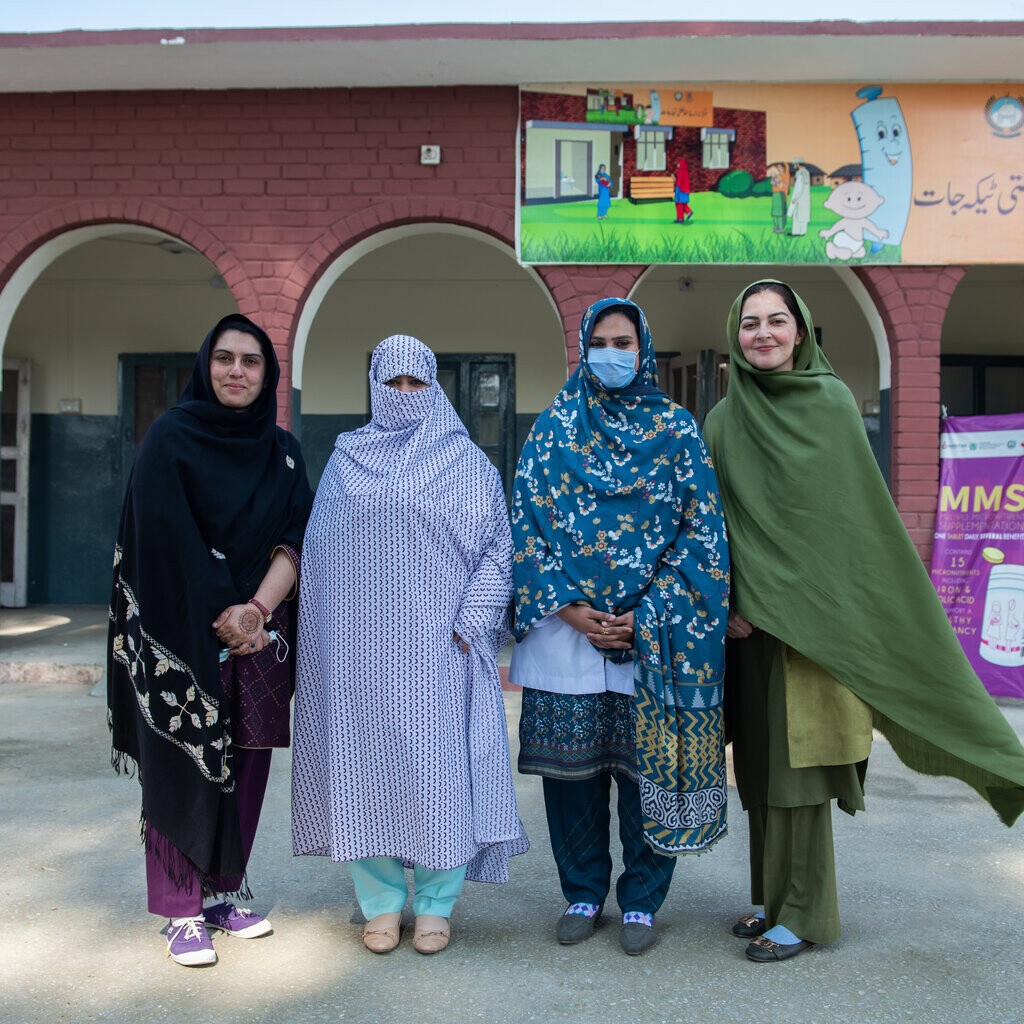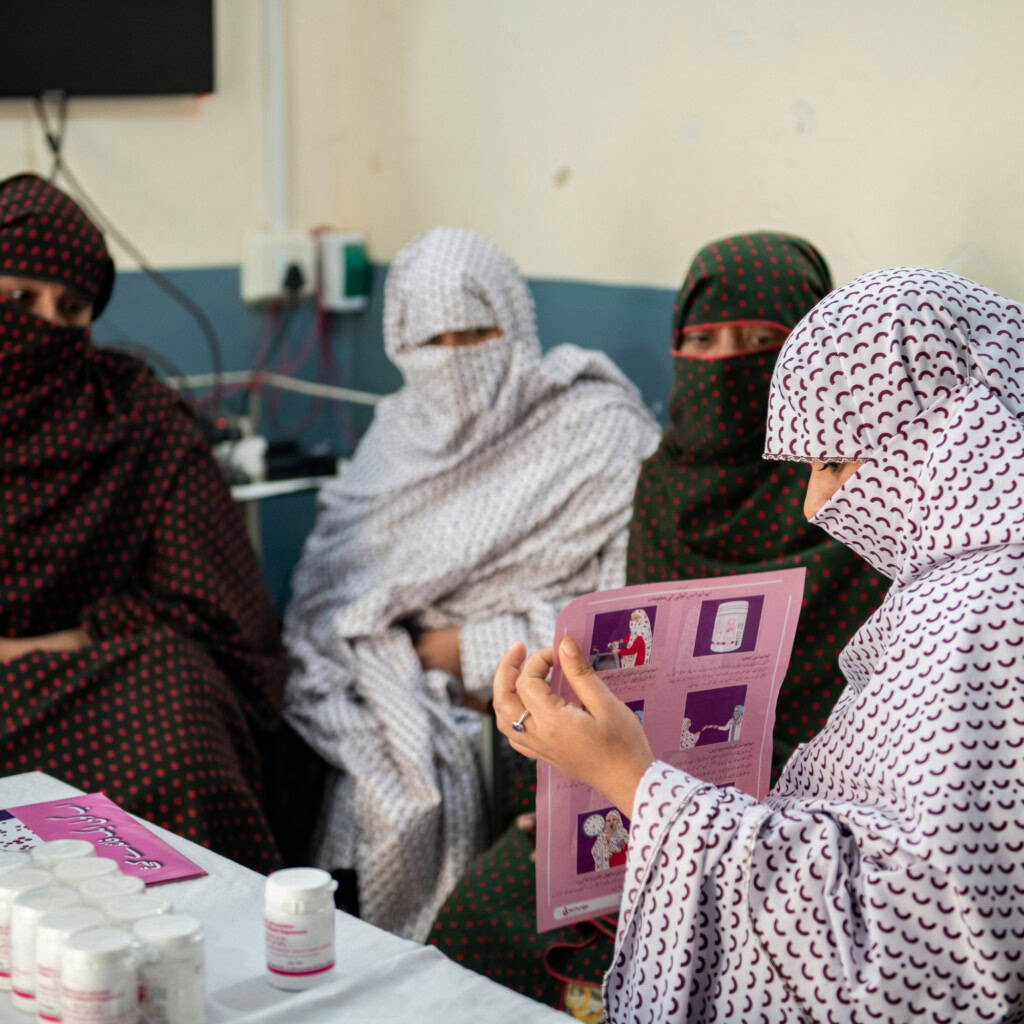As the trusted partner of choice for MMS scale up in Pakistan, we leveraged our expertise to conduct a landscaping analysis with the Government of Senegal to prioritize research themes and questions for the potential transition to MMS. Additionally, our experts met with national policymakers in Kenya to discuss maternal nutrition and MMS, which sparked further national dialogue and interest to pursue implementation research and a request for a costed roadmap. Across all countries, our MMS Cost Benefit Tool remains a key entry point to support decision making around the costs and benefits of switching from IFA to MMS. In total, more than 2.5 million pregnant women received IFAS with Nutrition International’s support, and over 37,000 pregnant women received a 100-count bottle of MMS.
Through the Maternal Iron and Folic Acid, and Calcium (MIFAC) project in India, we harnessed the power of artificial intelligence to develop ANIKA (Anaemia and Nutrition Information and Knowledge Accelerator), a WhatsApp-based chatbot designed to improve stock management and deliver social behaviour change messages. Since its launch in Madhya Pradesh and Gujarat, ANIKA has more than 700 registered users, including 507 frontline health workers and 196 beneficiaries.
Understanding that maternal and newborn health are closely linked, we collaborated with governments to implement comprehensive birth package interventions as part of a wider maternal and newborn care package to reduce neonatal mortality and improve the overall health and nutrition of newborn babies. Nutrition International’s birth package includes deliveries conducted by skilled birth attendants, optimally timed cord clamping, nutrition counselling, timely initiation of breastfeeding and nutrition counselling, and two context-specific interventions: kangaroo mother care (KMC) and clean cord care using chlorhexidine.


